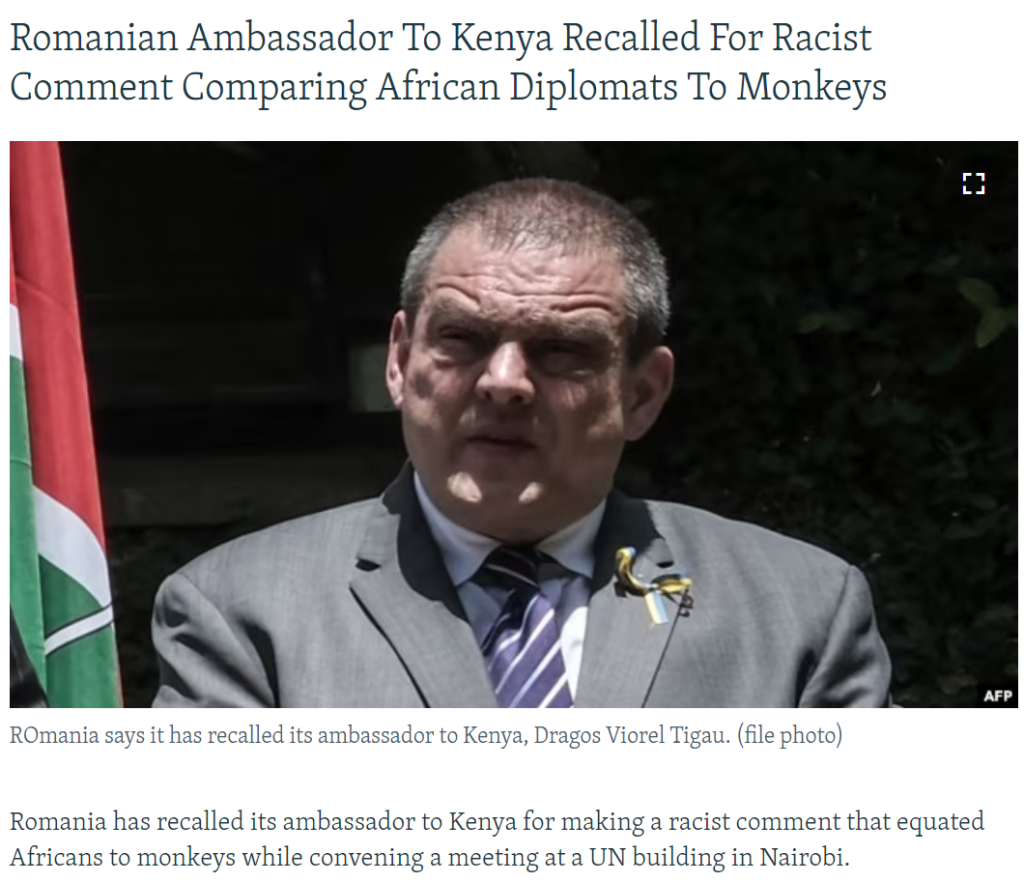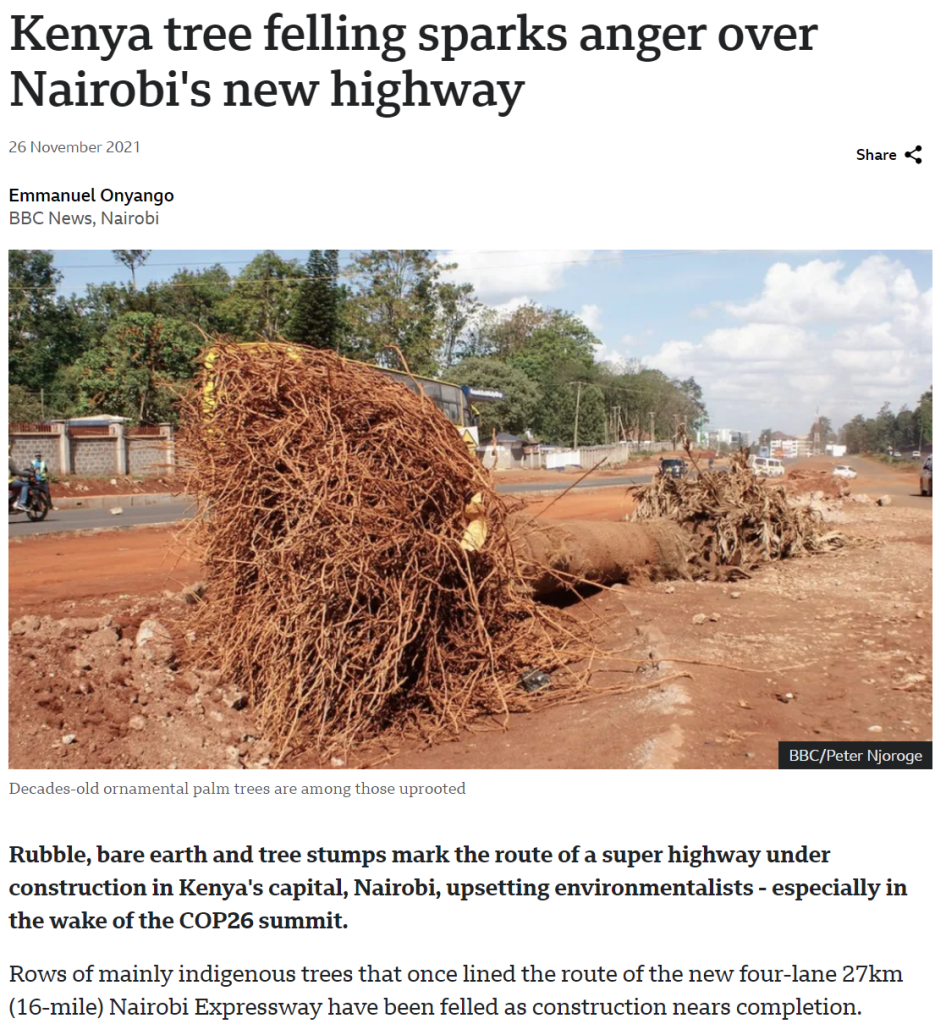A Deeper Look at Dehumanization Through International Aid
In 2023, a diplomatic incident sparked outrage and introspection. During a meeting of the Regional Group of East European countries, the Romanian ambassador to Kenya made a comment that left a bitter taste. As monkeys appeared at the window, he quipped, “the African Group had joined us.” This remark, seen as a slur, was not only offensive but also highlighted the persistent issue of dehumanization in international relations. The inaction from the meeting’s hosts, the United Nations, added salt to the wound.

This incident raises important questions about the impact of language and attitudes in international contexts, especially when discussing aid and development. It’s a complex issue, and we must explore it from several angles.
1. The Ambassador’s Comment: A Misjudged Joke?
Perhaps the ambassador thought he was making a light-hearted remark, referencing the theory of evolution where primates share a common ancestry with humans. In this context, primates preceded humans in the African continent and could be considered the original inhabitants. However, humor is a double-edged sword; what may seem amusing to one person can be deeply offensive to another, particularly when it touches on painful historical and racial contexts. This ‘joke,’ whether intended as harmless or not, echoes a long history of dehumanization that cannot be ignored.
2. Ignorance or Intentional Offense?
The ambassador’s comment can also be seen as a reflection of ignorance or subtle racism. It brings to mind the ugly scenes in soccer stadiums where African players have been taunted with bananas, a degrading and racist gesture. Such actions stem from deep-seated prejudices and a lack of respect for the humanity of others. In this case, it’s hard to dismiss the comment as merely thoughtless.
3. The Context of “Developing” Nations
The setting—a UN meeting—adds another layer of complexity. The term “developing” is frequently used to describe African nations, ostensibly to highlight their progress and potential. However, this label can often feel patronizing, as it implies that these nations are perpetually “not there yet,” reinforcing a subtle narrative of inferiority. Rather than merely describing economic status, this term can sometimes be a convenient excuse to sustain a cycle of dependency. International aid agencies, under the guise of assistance, often treat this as an opportunity to channel Western tax dollars to “Misery Merchants” and “Lords of Poverty,” who benefit from maintaining the status quo and funding their lavish lifestyles.
A striking example of this dynamic is Kenya, a nation often perceived as poor, yet capable of constructing a multi million-dollar ($668M) highway. This 27-kilometer-long road was specifically built to transport UN staff between their residences and the international airport. The cost of this highway amounts to $25 million per kilometer, which starkly contrasts with the average cost of building a similar road in Ontario, Canada, which is around $10 million per kilometer. This discrepancy highlights the disparity between the narrative of poverty and the realities on the ground, illustrating how resources are allocated in ways that do not necessarily reflect the needs of the local population.

Graham Hancock’s Lords of Poverty critiques this aid system, arguing that it frequently perpetuates dependence instead of fostering true development. The so-called “developed” nations may offer aid, but it often comes with strings attached, cultivating a narrative that traps recipients in a perpetual state of need. This dynamic not only undermines the dignity of the aid recipients but also stifles their potential for self-sufficiency and growth.
A Deeper Reflection on “Development”
Before the advent of slavery and colonization, African societies were rich in culture, wisdom, and complex social structures. They didn’t see themselves as inferior; they valued harmony with nature, community cohesion, and the dignity of the individual. This holistic worldview fostered a strong sense of self-worth and collective pride.
However, the imposition of foreign ideas and the traumas of colonization have skewed these perceptions. The concept of being “developed” has often been narrowly defined by economic and technological standards, ignoring ethical considerations, sustainability, and the impact of destructive technologies. This narrow definition often overlooks the rich cultural heritage and resilience of African societies.
Reclaiming Our Narrative
The Romanian ambassador’s comment is a stark reminder that words carry weight, especially in international discourse. It’s a call to re-examine how we talk about development and to challenge narratives that undermine the dignity of any group. The incident also underscores the need to shift from a scarcity mindset—where resources and respect are limited and must be competed for—to one of abundance, where every culture and society has value and potential.
As we navigate these conversations, let’s not lose sight of the rich heritage and resilience of African societies. True development should be holistic, embracing not just economic and technological growth, but also ethical practices, environmental sustainability, and a deep respect for all cultures.
We must build bridges of understanding and empathy, celebrating our shared humanity and the diversity that enriches us all. As we move forward, let’s ensure that our actions and words align with our values, fostering a world where every person and culture is respected and valued.
Exposed: Is International Aid a Scam? How Aid Agencies Thrive on Poverty.